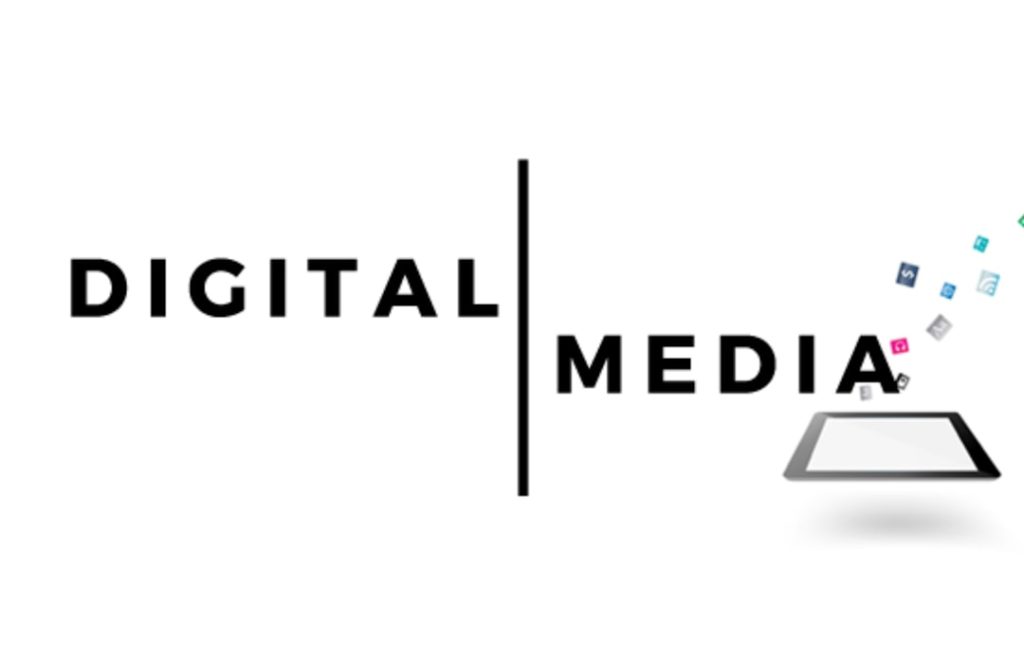The digital marketing landscape has experienced exponential growth over the past decade, driven by the rapid advancement of technology and the increasing reliance on the internet for business operations. As companies pivot to online platforms to reach their target audiences, the demand for skilled digital marketing professionals has surged. According to a report by the Bureau of Labor Statistics, employment in the field of marketing is projected to grow by 10% from 2020 to 2030, which is faster than the average for all occupations.
This growth is fueled by the need for businesses to establish a robust online presence, engage with customers through various digital channels, and leverage data analytics to inform their marketing strategies. Moreover, the COVID-19 pandemic accelerated this trend, as businesses were forced to adapt to a digital-first approach. Many traditional marketing roles have evolved or been replaced by digital counterparts, leading to a significant increase in job opportunities within this sector.
Companies are now seeking professionals who can navigate the complexities of digital advertising, social media management, search engine optimization (SEO), and content creation. This shift has not only created a wealth of job openings but has also diversified the skill sets required in the marketing field, making it an exciting time for aspiring marketers.
Key Takeaways
- Digital marketing jobs are on the rise, with a growing demand for professionals in this field.
- Skills and qualifications needed for digital marketing jobs include proficiency in social media, SEO, and analytics, as well as a strong understanding of consumer behavior.
- Different roles in digital marketing include social media manager, content creator, SEO specialist, and data analyst, each with their own set of responsibilities.
- Data analysis is crucial in digital marketing for understanding consumer behavior, tracking campaign performance, and making data-driven decisions.
- Social media has a significant impact on digital marketing jobs, with the need for professionals to understand and leverage various social media platforms for marketing purposes.
The Skills and Qualifications Needed for Digital Marketing Jobs
To thrive in the competitive realm of digital marketing, candidates must possess a diverse set of skills and qualifications. A foundational understanding of marketing principles is essential, but beyond that, proficiency in various digital tools and platforms is crucial. Familiarity with content management systems (CMS) like WordPress, email marketing software such as Mailchimp, and analytics tools like Google Analytics can significantly enhance a candidate’s employability.
Additionally, knowledge of SEO best practices and pay-per-click (PPC) advertising can set candidates apart in a crowded job market. Soft skills are equally important in digital marketing roles. Effective communication skills are vital for crafting compelling messages that resonate with target audiences.
Creativity plays a significant role in developing engaging content and innovative campaigns that capture attention in an oversaturated digital space. Furthermore, adaptability is key; as technology and consumer behavior evolve, marketers must be willing to learn and adjust their strategies accordingly. Continuous education through online courses, certifications, and workshops can help professionals stay current with industry trends and emerging technologies.
The Different Roles and Responsibilities in Digital Marketing
Digital marketing encompasses a wide array of roles, each with its own unique responsibilities and focus areas. At one end of the spectrum, digital marketing managers oversee entire campaigns, coordinating efforts across various channels such as social media, email, and search engines. They are responsible for developing strategies that align with business goals, managing budgets, and analyzing performance metrics to optimize future campaigns.
This role requires a blend of strategic thinking and hands-on execution. On the other hand, specialized roles such as SEO specialists focus specifically on improving a website’s visibility in search engine results. These professionals conduct keyword research, optimize website content, and analyze performance data to enhance organic traffic.
Similarly, social media managers curate content for platforms like Facebook, Instagram, and Twitter, engaging with followers and building brand loyalty through consistent interaction. Each role contributes to the overarching goal of driving traffic and conversions, highlighting the collaborative nature of digital marketing teams.
The Importance of Data Analysis in Digital Marketing
Data analysis has become a cornerstone of effective digital marketing strategies. With the vast amount of data generated by online interactions, marketers have access to insights that can inform decision-making and optimize campaigns. Understanding metrics such as click-through rates (CTR), conversion rates, and customer engagement levels allows marketers to gauge the effectiveness of their efforts and make data-driven adjustments.
For instance, A/B testing different email subject lines can reveal which variations yield higher open rates, enabling marketers to refine their messaging. Moreover, predictive analytics is increasingly being utilized to forecast consumer behavior and trends. By analyzing historical data, marketers can identify patterns that inform future strategies.
For example, if data shows that certain demographics respond better to specific types of content or promotions, marketers can tailor their campaigns accordingly. This reliance on data not only enhances campaign effectiveness but also provides a competitive edge in an ever-evolving digital landscape.
The Impact of Social Media on Digital Marketing Jobs
Social media has revolutionized the way brands interact with consumers, creating new opportunities and challenges for digital marketing professionals. Platforms like Facebook, Instagram, LinkedIn, and Twitter have become essential tools for reaching target audiences and building brand awareness. As a result, social media management has emerged as a distinct career path within digital marketing.
Social media managers are tasked with creating engaging content, monitoring brand reputation, and analyzing engagement metrics to refine strategies. The rise of influencer marketing is another significant development driven by social media’s impact on digital marketing jobs. Brands increasingly collaborate with influencers who have established credibility within specific niches to promote their products or services.
This trend has led to the emergence of influencer marketing specialists who focus on identifying suitable influencers, negotiating partnerships, and measuring campaign success. As social media continues to evolve, professionals in this field must stay abreast of platform changes and emerging trends to effectively leverage these channels for brand growth.
The Role of Content Marketing in Digital Marketing Jobs
Content marketing plays a pivotal role in digital marketing strategies by providing valuable information that attracts and engages target audiences. Content marketers are responsible for creating high-quality content that aligns with brand messaging while addressing the needs and interests of consumers. This can include blog posts, videos, infographics, podcasts, and more.
The goal is not only to drive traffic but also to establish authority and trust within the industry. Effective content marketing requires a deep understanding of audience personas and their pain points. Marketers must conduct thorough research to identify topics that resonate with their target demographic while optimizing content for search engines through SEO techniques.
Additionally, content distribution strategies are crucial; simply creating great content is not enough if it does not reach the intended audience. Marketers must utilize various channels—such as social media platforms, email newsletters, and partnerships with other websites—to ensure their content gains maximum visibility.
The Rise of Remote Work in Digital Marketing
The shift towards remote work has been one of the most significant changes in the workforce landscape in recent years, particularly accelerated by the COVID-19 pandemic. Digital marketing jobs are particularly well-suited for remote work due to their reliance on technology and online communication tools. Many companies have embraced flexible work arrangements, allowing marketers to collaborate from different locations while maintaining productivity.
Remote work offers numerous benefits for both employers and employees in the digital marketing sector. For employers, it expands the talent pool beyond geographical limitations, enabling them to hire skilled professionals regardless of location. For employees, remote work provides greater flexibility in managing work-life balance and eliminates commuting time.
However, it also presents challenges such as maintaining team cohesion and effective communication across virtual platforms. Marketers must adapt their collaboration strategies to ensure that projects run smoothly despite physical distances.
The Future of Digital Marketing Jobs
As technology continues to advance at a rapid pace, the future of digital marketing jobs is poised for further transformation. Emerging technologies such as artificial intelligence (AI), machine learning, and automation are reshaping how marketers approach their work. AI-powered tools can analyze vast amounts of data more efficiently than humans ever could, providing insights that inform campaign strategies and customer targeting.
Additionally, the rise of voice search and smart devices is changing how consumers interact with brands online. Marketers will need to adapt their strategies to accommodate these new technologies by optimizing content for voice search queries and exploring innovative ways to engage users through emerging platforms like augmented reality (AR) or virtual reality (VR). As these trends unfold, professionals in digital marketing will need to remain agile and continuously update their skill sets to stay relevant in an ever-evolving landscape.
The Diversity and Inclusivity in Digital Marketing Jobs
Diversity and inclusivity have become critical focal points within the digital marketing industry as organizations recognize the value of varied perspectives in driving creativity and innovation. A diverse workforce brings together individuals from different backgrounds who can contribute unique insights into consumer behavior and preferences. This diversity enhances a brand’s ability to connect with a broader audience while fostering an inclusive environment that encourages collaboration.
Many companies are actively working towards creating more inclusive hiring practices by implementing initiatives aimed at attracting underrepresented groups within the industry. This includes partnerships with organizations that support diversity in tech or offering internships specifically designed for individuals from diverse backgrounds. By prioritizing inclusivity in hiring processes and workplace culture, organizations can cultivate an environment where all employees feel valued and empowered to contribute their ideas.
The Challenges and Opportunities in Digital Marketing Jobs
While the growth of digital marketing jobs presents numerous opportunities for professionals entering the field, it also comes with its share of challenges. One significant challenge is keeping pace with rapidly changing technologies and consumer behaviors. Marketers must continuously educate themselves about new tools, platforms, and trends to remain competitive in an industry characterized by constant evolution.
Additionally, competition for top positions can be fierce as more individuals seek careers in digital marketing due to its promising prospects. Candidates must differentiate themselves through specialized skills or certifications that demonstrate expertise in specific areas such as SEO or data analytics. However, these challenges also present opportunities for growth; those who embrace lifelong learning and adaptability will find themselves well-positioned for success in this dynamic field.
Tips for Landing a Digital Marketing Job
For aspiring digital marketers looking to break into the industry, several strategies can enhance their chances of landing a job. First and foremost is building a strong online presence; creating a personal website or blog showcasing relevant skills can serve as a portfolio that demonstrates expertise in content creation or SEO techniques. Additionally, leveraging social media platforms like LinkedIn can help individuals connect with industry professionals and showcase their knowledge through thoughtful posts or articles.
Networking plays a crucial role in securing job opportunities within digital marketing; attending industry conferences or webinars allows candidates to meet potential employers while gaining insights into current trends. Furthermore, pursuing relevant certifications from reputable organizations—such as Google Analytics or HubSpot—can bolster resumes by demonstrating commitment to professional development. Finally, tailoring applications to highlight specific skills relevant to each job posting will help candidates stand out among applicants vying for similar positions.
In conclusion, the landscape of digital marketing jobs is vibrant and continually evolving. With an increasing demand for skilled professionals equipped with diverse skill sets ranging from data analysis to content creation, those entering this field have ample opportunities for growth and success.
If you are interested in learning more about digital marketing jobs, you may want to check out this article on uprankerz.com. This article provides valuable insights into the world of digital marketing and the various job opportunities available in this field. It covers topics such as the skills and qualifications required for digital marketing jobs, as well as the different career paths you can pursue in this industry. Whether you are a seasoned professional or just starting out in your career, this article is a must-read for anyone looking to break into the world of digital marketing.


